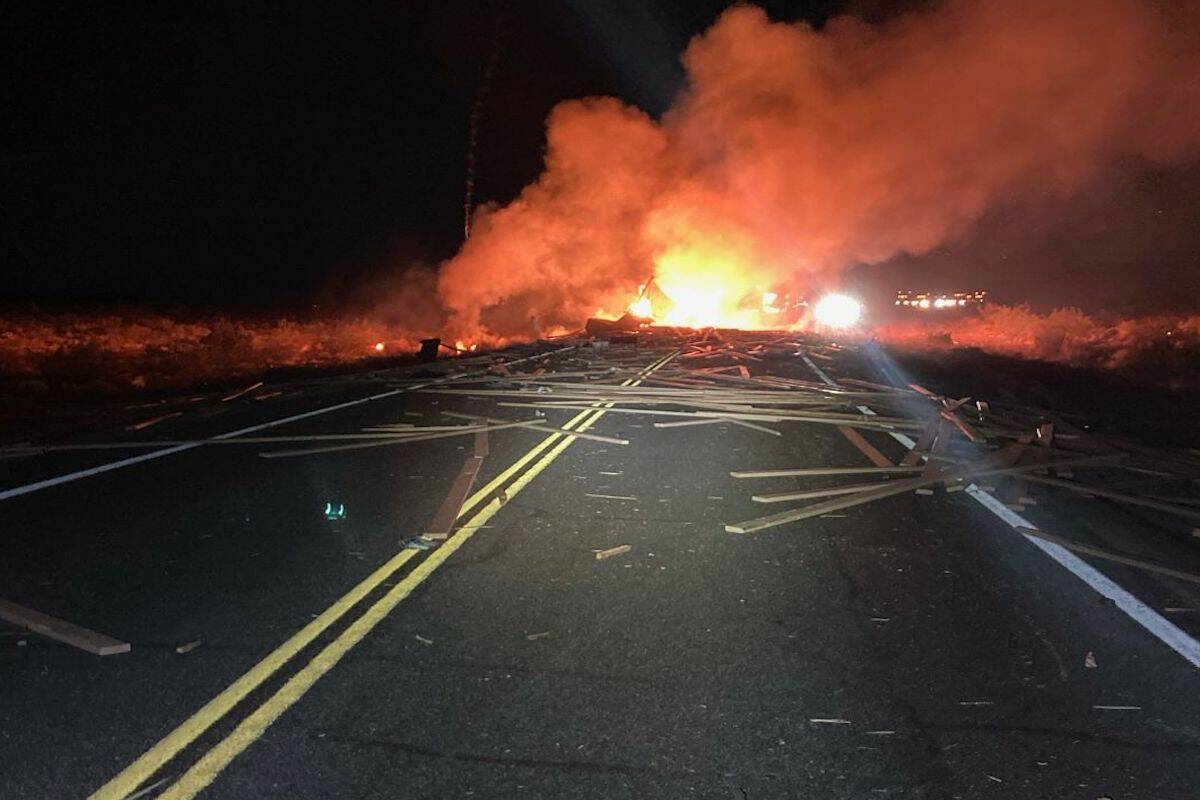EDITORIAL: Lithium fires a major roadway hazard
A fire that didn’t burn out was once considered a miracle. Now it’s a hazard faced by Nevada motorists.
On Tuesday, two trucks crashed in Nye County. One was carrying wood. The other was hauling lithium batteries, which quickly caught fire. That’s a major problem, because fires involving lithium batteries are extremely hard to put out.
The biggest concern is thermal runaway. It can happen when a lithium-ion cell generates or is subjected to more heat than can be removed from the battery cell. That can be caused by something like a truck crash. High temperatures then cause the internal parts of the battery cell to fail, which further raises temperatures. High heat in one cell causes other cells to fail, which fuels a destructive chain reaction. When a lithium battery fire burns, it releases oxygen, providing fuel for the fire.
These fires can be extremely hot. If an electric vehicle, which has a lithium battery, catches fire, it’ll burn at around 5,000 degrees Fahrenheit. A normal fossil fuel-powered car fire burns at around 1,500 degrees F.
The biggest concern to motorists isn’t the science, but that these fires often close roads for hours. In this case, the Nevada State Police shut down U.S. Highway 95 between state Route 160 and Mercury earlyTuesday morning. Firefighters put out the blaze rather quickly, but a hazmat team was needed to clean up the surrounding area. It wasn’t until after 6 p.m. that the Nevada Department of Transportation announced on X that the road was open.
Some drivers have had it much worse. In July, a truck hauling lithium batteries crashed near Baker, California. That caused a fire so intense that it burned for more than 44 hours. The fire also spewed out toxic gases and chemicals. Eventually, officials moved it away from the highway in order to open the road. The wreck stopped northbound travel for more than 40 hours. Southbound traffic was closed for several hours.
Last month, a Tesla semi-truck had an accident in Northern California. Unsurprisingly, its battery caught on fire. The incident shut down the freeway for 14 hours. Firefighters used 50,000 gallons of water to extinguish the inferno. As California pushes for more EV big rigs, expect problems like this to become more common.
Last week, Rep. Dina Titus proposed the “Thermal Runaway Reduction Act,” which aims to reduce the damage caused by incidents like these. One provision would limit the amount of charge lithium-ion batteries can have during ground transportation. That seems reasonable, although the implications for EVs should cause leftists to pause.
Lithium fires are a serious problem. Action is needed before an incident like this happens next to a populated area like the Las Vegas Strip.

















